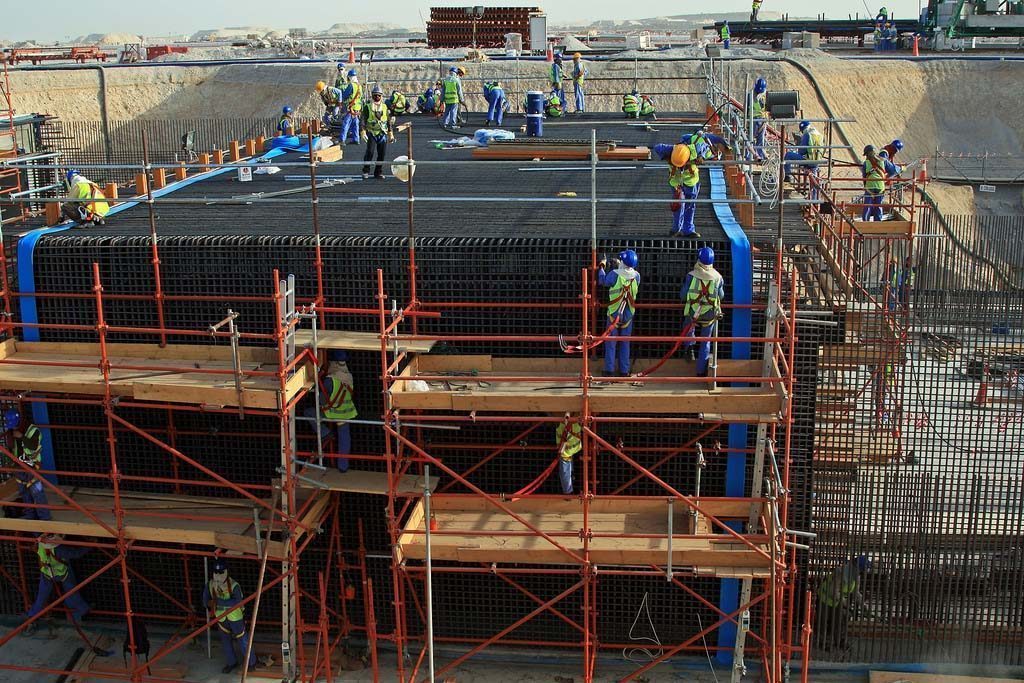
The US State Department has added Qatar to a watch list for the Gulf country’s failure to increase its efforts to combat human trafficking.
Qatar now joins Bahrain on the ‘tier-two watch list,’ the third-worst position among the report’s four country classifications.
By comparison, Oman and the UAE both fall into the tier-two category, where Qatar ranked last year, while Kuwait and Saudi Arabia are both among the 23 worst nations in the report’s lowest tier.
The US says its annual Trafficking in Persons Report is its primary tool for engaging foreign governments to combat trafficking.
It’s also used by non-governmental organizations as well as foreign states as a guide to help them focus their resources.
The downgrade to the ‘tier-two watch list’ is unlikely to have any immediate impact on Qatar.
By contrast, tier-three countries are subject to US sanctions – specifically withholding financial aid, unless American officials deem that it’s in their national interest to continue providing monetary support.
Qatar falls outside that classification, is extremely wealthy and plays an important military role as host of the largest US air base in the Middle East.
The downgrade is, however, another public indictment of Qatar’s human rights record, specifically how the country’s kafala, or sponsorship, system leaves migrant workers vulnerable to abuse by unscrupulous employers of all nationalities.
The US report states:
“Many migrant workers arriving in Qatar have paid exorbitant fees to recruiters in their home countries, and some recruitment agencies in labor-sending countries have lured foreign workers with false employment contracts.
Qatar’s sponsorship system places a significant amount of power in the hands of employers and, therefore, debt-laden migrants who face abuse, or who have been misled, often avoid legal action because of fear of reprisal, the lengthy recourse process, or lack of knowledge of their legal rights, ultimately ensnaring them into forced labor, including debt bondage.
Moreover, under the restrictive sponsorship system, employers have the unilateral power to cancel residency permits, deny workers the ability to change employers, and deny them permission to leave the country.”
The same issue was raised earlier this month at the United Nations Human Rights Council and was also a main theme of a comprehensive report on the construction sector by Amnesty International last fall.
Behind the rankings
Qatar was not the only country to be downgraded in the report.
A total of 17 nations moved into a lower category, including 13 states such as Cyprus, Jamaica and Pakistan that joined Qatar in being added to the tier-two watch list.
Some 13 countries, meanwhile, were deemed by US officials to have improved their performance and moved up the list.
In explaining Qatar’s downgrade, the report’s authors said the country does not comply with the minimum standards for eliminating human trafficking.
While making “significant efforts” to do so, the report says the Qatar government failed to demonstrate it is increasing its efforts to address the issue.
It covers activities between April 1, 2013, and March 31, 2014, which means that it did not take note of Qatar’s plans to reform its kafala system announced in May.
One of the leading drivers of forced labor in Qatar, the report states, is delayed or non-payment of wages.
The government has discussed tackling this by mandating companies to pay employees electronically so authorities can track and punish offending employers. However, like the proposed kafala reforms, no firm timeline for such a regulation has been announced.
In theory, the proposed changes to the country’s labor laws announced in May will address several other key concerns raised in the report, by making it harder for sponsors to deny employees exit permits, by setting minimum living standards and by raising fines for confiscating passports.
However, as the US report notes, withholding passports is already illegal in Qatar, but the law is not rigorously enforced.
Solutions
The report also suggests that perceptions among Qatar’s officials is part of the problem:
“Some government officials downplayed that human trafficking exists in Qatar, drawing a distinction between labor exploitation and human trafficking…” it states.
“The government frequently treated disputes between workers and employers as administrative issues and made minimal efforts to identify victims of forced labor among these cases. Some Qatari officials failed to recognize that severe labor abuses could amount to human trafficking…The government’s primary solution for resolving labor violations was to transfer a worker’s sponsorship to a new employer with minimal effort to investigate whether the violations may have amounted to forced labor.”
Along with abolishing or significantly overhauling the country’s sponsorship laws, the report’s authors call for:
- Increased efforts to investigate and prosecute trafficking offenses;
- Fines for employers who withhold workers’ wages or passports;
- The enforcement of the law requiring that employees receive residence cards within one week of arrival;
- Proactively identifying victims of all forms of trafficking among vulnerable groups, such as those arrested for immigration violations or prostitution, and providing victims with adequate protection services; and
- Collecting, analysis and distribution of anti-trafficking law enforcement data.
At the same time, the report highlighted Qatar’s “sufficiently stringent” penalties for human trafficking crimes, training for police officers, prosecutors and judges, as well as a shelter for women and children run by Qatar Foundation to Combat Human Trafficking.
The facility assisted 1,701 individuals in 2013 with legal assistance, financial compensation and medical aid.
Thoughts?







